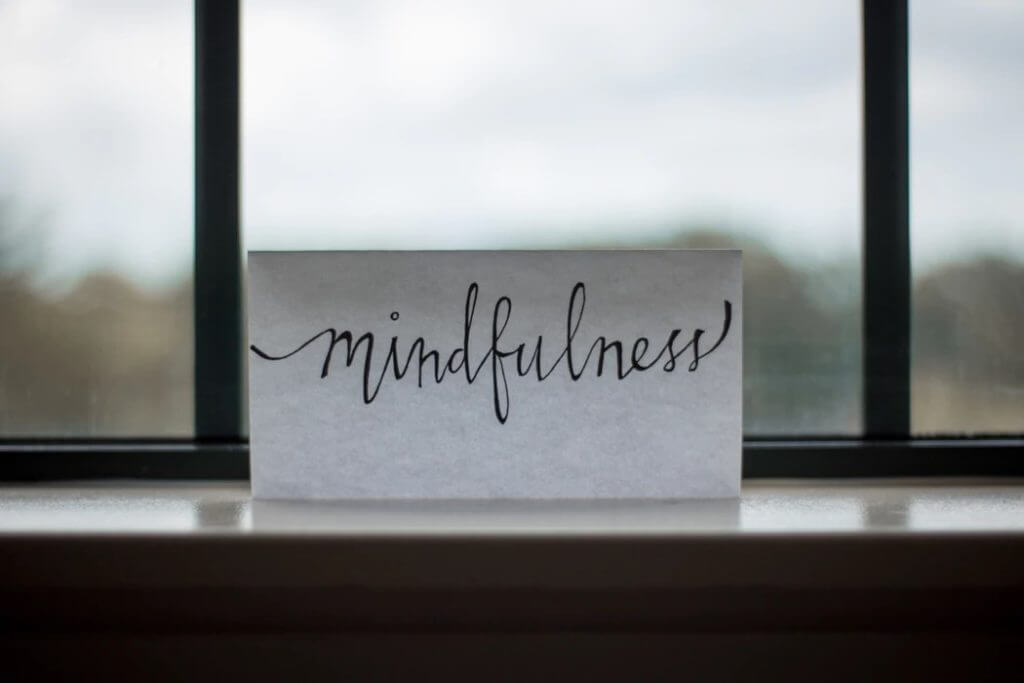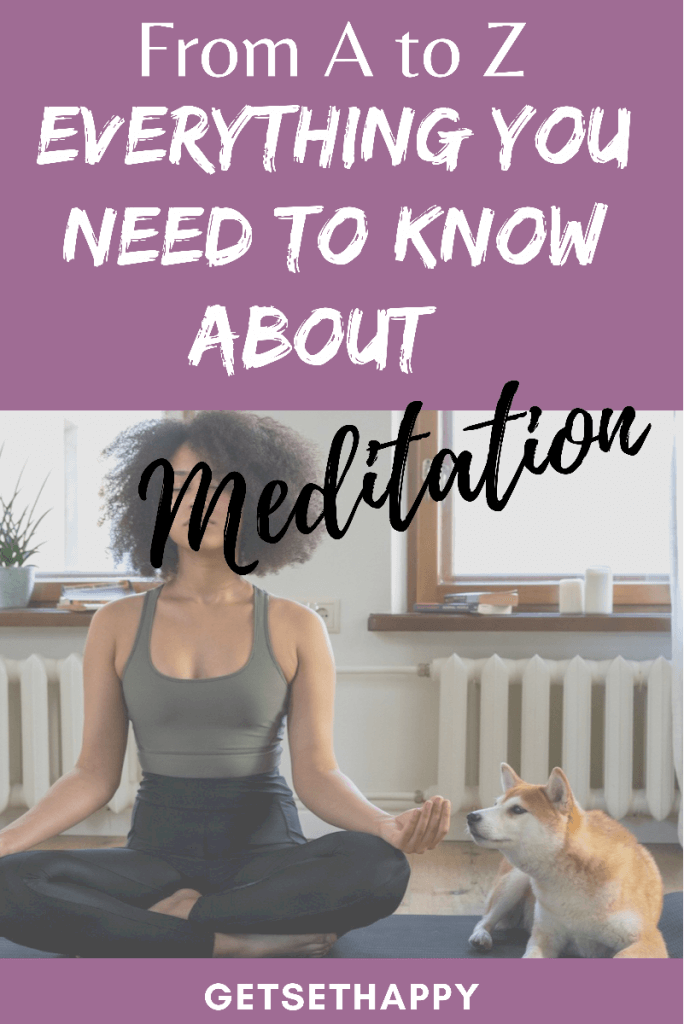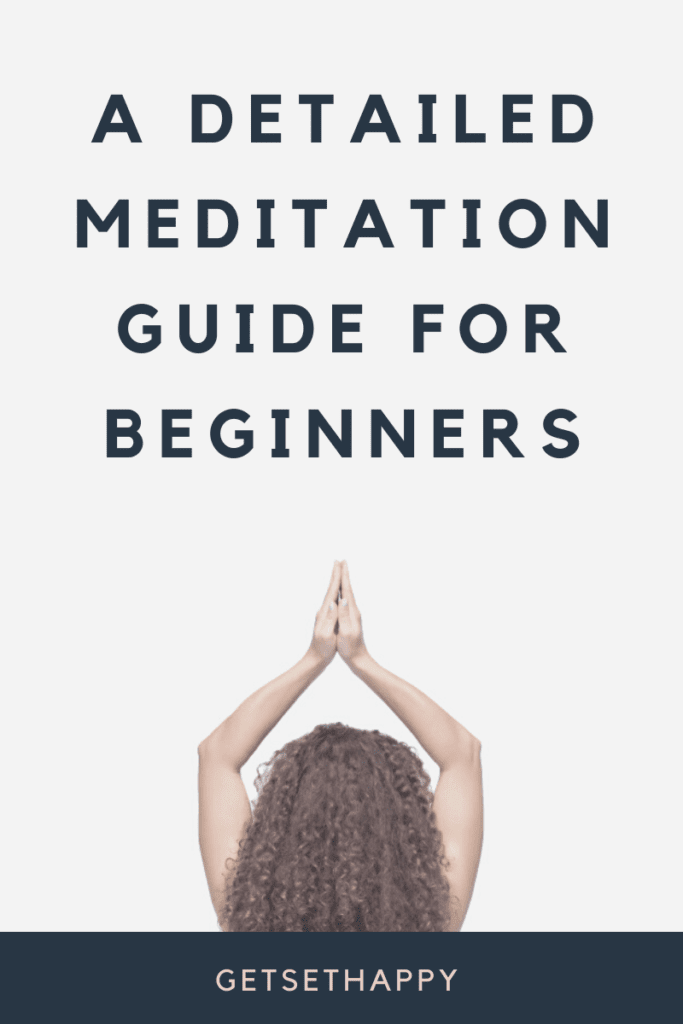Happiness lies in the state of mind and not in external circumstances. The states of our mood do not depend on what happens around us rather what we make of everything in our heads.
There are times when you are exhausted, but you feel happy because of the hard work you put in. You can feel agitated even though nothing sort of that happened to make you feel so.
When they say it’s all in the mind, it is true indeed when it comes to processing life’s events.
Is there anything that can be done not only for quick mood fixing but also to help you see the glass half full rather than half empty?
One Solution to All Your Problems – Meditation.
Meditation is a fundamental exercise that involves relaxation, focus, and awareness. Meditation is to mind what exercise is to the body.
The practice isn’t about becoming a different person, a better person, or even a new person. It isn’t about trying to turn your thoughts off or feelings. Rather it is about training yourself in awareness and gaining a healthy sense of perspective. You learn to observe without the element of judgment. As you go on, you might start to understand better and eventually, master it.
How to Meditate?

Meditation can be practiced in three modes –
- Concentration
- Observation
- Awareness
Here are the steps for Meditation for Beginners
- Sit in a comfortable position for just a few minutes (You can start with 2-3 minutes and increase the duration gradually.)
- Don’t get stuck up with the how — just do.
- Focus on how you’re feeling – Stressed, light, relaxed or restless, etc…
- Count your breaths and notice the flow of breath on your nostrils.
- Gently bring back attention to your breath when your mind wanders. (Don’t push yourself hard, it may take a few days of practice).
Initially, you may consider following guided meditation, this will help you to develop a practice.
Meditation is one of the practices which has found to reduce anxiety, pain, and depression amongst people. Evidence suggests that experienced meditators also undergo changes at molecular and genetic levels which could lead to reduced inflammation and beneficial health effects.

Why Meditation at all?
Now that you have an idea about how to meditate; the Next question arises is why should I meditate? This is the most common question asked by beginners. There are personal differences in each person. There must be a reason as to why is it necessary to sit in silence and meditate. Meditation isn’t all about gaining insight into spirituality. It is more about personal growth and learning to be with your own self.
Here are a few reasons as to why you should meditate –
- It helps you to be more content and happier in life.
- Meditating not only helps you to lead a long and healthy life but also help you to fight against a specific disease/ailment/health issue.
- Meditation has found to improve relationships and thus, there’s more harmony when you interact with others.
- Scientific evidence proves that meditating makes one sharper, smarter, and more creative. This, in turn, has a positive impact on your work and studies.
- Meditation eventually leads you to spiritual awakening and enlightenment. Which, by the way, is not mystical as it may sound.
Are there any roadblocks?

Despite the innumerable benefits to meditation, there are several obstacles which beginners encounter. Meditation can be deceptive to beginners because it looks simple.
When I was recommended to learn how to meditate, my first instant response to meditation was how hard can it be to sit silently and do nothing. To be honest, I thought meditation for me will be relatively easy since doing nothing is my favorite thing to do.
However, when I learned, how to meditate, I realized that the truth is meditation is all about being passive and doing nothing. Because meditation is training your mind to increase mindfulness, resilience, and concentration. This training demands effort and commitment from your side and of course, the time you are required to put in if you really wish to transform your mind.
What we, as beginners, need to realize is that encountering problems and overcoming them is a part of the process in becoming more focused and resilient to the external and internal influences in life.
Each problem comes with its own solutions.
Here is a list of possible problems that beginners may encounter.
With problems, we have stated the solution as well to help you walk on the path of meditation.
You Can’t Seem to Stop Thinking
When you are supposed to be focusing on your meditation, your mind keeps wandering off to everything and anything but meditation. This problem can also exist in the form of incessant self-talk which has a say in everything, including your practice.
Solution: One of the effective methods is the breath counting to calm a mind full of voices. In its most basic form, you are required to count every breath cycle. (Breath cycle – each inhale followed by an exhale) There is no need to worry every time you lose count. You can begin from one all over again.
You Can’t Find Time for Meditation
Your schedule seems to be packed to the brim and there’s no way to squeeze time for meditation. And when you do, there’s always something that has to be done. This routine makes your practice inconsistent and sporadic, which limits your exposure to benefits from meditation.
Solution: Make it a rule or habit, whichever works the best for you, to invest 10 minutes of your precious time in your inner well-being by meditating. You can take out these 10 minutes for meditation either before you go to sleep or immediately after waking up. I feel that the best time to meditate is before you step into the hustle and bustle of the day. Let everyone who lives with you know the sacredness of this time period in your life.

You Keep Spacing Out or Nodding Off
Spacing out or drowsiness is one of the common obstacles which beginners encounter. I too have encountered this problem when I began meditating. It is common to feel asleep while meditating. That happens because your mind has entered the state of mental dullness in which you are sub-conscious. In such cases, your mind is lacking alertness, mindfulness, and the ability to focus sharply.
In this case, it depends upon your aim of meditation – is it relaxation or mental clarity, insights or spiritual advancement?
If the sole purpose of your meditation is relation then there’s probably nothing wrong. However, if you are on the path to mental clarity then we do have a solution for you.
Solution: Whenever you notice yourself spacing out or nodding off, you must inject more energy into your practice.
If your posture is not right, then do so immediately – straight up your back, lift up your chin a little higher, or you may contract your lower abdominal muscles as well.
If at any point of time, you feel that you are losing focus, you can simply return your attention back by breath count or an object of meditation. This will also help you to refresh your mind.
You can also chant a mantra or try some walking meditation if none of the solutions works for you.

You Can’t Relax
There are times when no you try everything in your capacity to settle down, however, you are unable to settle down or relax as you normally would. You may end up being stressed or anxious as to why you’re unable to get into your meditative state.
Solution: It can be quite a tedious task to meditate when your mind is agitated. When a mind is caught up in its own world, it fails to focus on breath counting or any chosen object except the thing it is currently obsessed with. To get out of this agitated state of mind, a better strategy would be to scatter the energies of your mind and calm it down with the external means, for example, exercising, listening to music or any pleasurable activity.
Wrapping Up
It is necessary to have at least one external activity in order to take our minds off our worries in times of stress or anxiety.
It is not necessary that every day you will meditate as per your expectations. There will be endless problems which will come to your way, however, you need to keep a strong head and work with the desire to meditate effectively.
Each time you end your session of meditation, appreciate yourself for taking one step forward in the journey of mindfulness.
Keep Breathing. Keep Meditating.






10 Comments
Lisa Marie Alioto
June 5, 2020 at 6:07 pmI love meditation – it’s brought so much calm and peace to my hectic life!! Thanks for sharing this article!I hope others can benefit from it as well.
Patricia P.
June 5, 2020 at 6:24 pmI first started meditating after my cancer diagnosis. It was so helpful. It calmed me during a time of mental and physical upheaval. I still meditate today. I am a 6 year survivor. Great post. I encourage anyone to meditate. Such a healthy thing to do for yourself.
Surabhi Kaushik
June 6, 2020 at 6:09 pmMeditation is a great practice. Thanks for sharing this helpful article.
Robert
June 6, 2020 at 8:30 pmExcellent post for those who may be just starting out with Meditation. We have been practicing for a few years now following Inner Engineering with Sadguru. The results have been wonderful. Have Pinned your post as well to share with others. 🙂
Andrei
June 6, 2020 at 8:35 pmThank you for sharing! I would love to incorporate meditation in my everyday life!
Nilakshi
June 7, 2020 at 9:58 pmLove this article. Meditation is a way of life. Thank you for explaining it in such a wonderful way.
Alexis
June 23, 2021 at 6:01 pmGreat article! I would love to start getting into meditation. I will follow your steps to start my meditation journey. Thanks for the tips.
Pam
June 23, 2021 at 6:58 pmGreat article. I love meditations because it is the remedy that helps to calm my nerve after a long day. Thanks for sharing.
Erika Ravnsborg
June 23, 2021 at 9:47 pmMeditation has always helped me when I am in a bind. It just puts me in a better mood and frame of mind
Lindsey
October 11, 2022 at 6:31 amGreat resource and so needed in the busy lives we live today. We have to take time to be present.